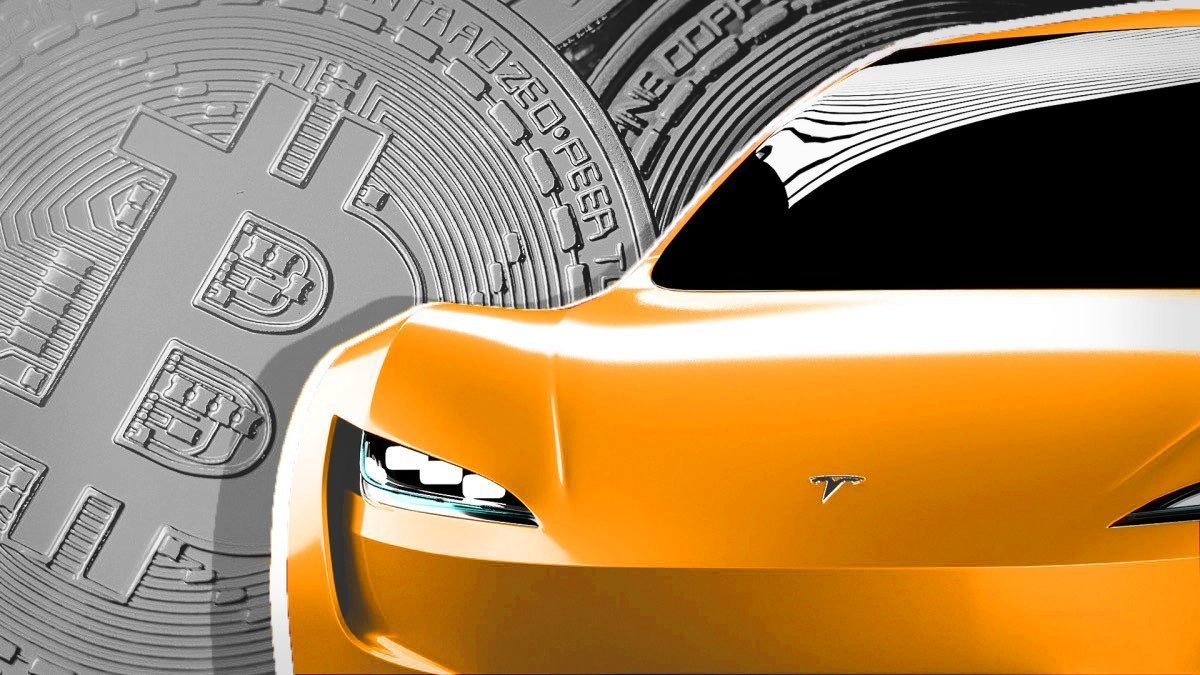
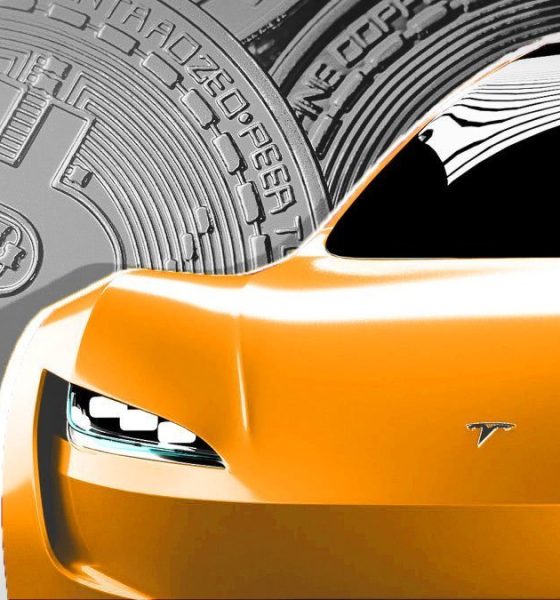
Investor's Corner
Tesla no longer states ‘long-term’ belief in crypto, details $200M Bitcoin loss
Tesla may be backtracking on its belief in the long-term benefits of investing in Bitcoin after losing over $200 million on the investment last year. The language that has appeared in past 10-K documents filed by the automaker that seems to show a bullish attitude toward investing in cryptocurrencies is no longer there.
Early in 2021, Tesla announced it invested an aggregate $1.50 billion in Bitcoin while temporarily accepting the crypto as a form of payment on some products. Tesla had detailed a “long-term belief” in digital assets in filings in past 10-K filings:
“We believe in the long-term potential of digital assets both as an investment and also as a liquid alternative to cash.”
This statement was most recently seen in Tesla’s 10-K for the 2021 calendar year.
However, this language has disappeared from Tesla’s most recent 10-K, which was released this morning:
“For example, in the year ended December 31, 2022, we recorded $204 million of impairment losses resulting from changes to the carrying value of our bitcoin and gains of $64 million on certain conversions of bitcoin into fiat currency by us.”
Last year, Tesla recorded impairment losses of $101 million, with gains of $128 million “on certain conversions of bitcoin into fiat currency” by the company.
In the past year, Bitcoin’s value has dropped by 40 percent. It has rebounded nicely so far in 2023, regaining over $6,500 so far this year. Currently, it is trading at $23,109.60.
Last year, CEO Elon Musk revealed Tesla had sold a considerable amount of its Bitcoin, favoring cash holdings due to tough economic conditions:
“It should be mentioned that the reason we sold a bunch of our bitcoin holdings was that we were uncertain as to when the COVID lockdowns in China would alleviate…So it was important for us to maximize our cash position, given the uncertainty of the COVID lockdowns in China.”
Tesla reveals it sold three-quarters of its Bitcoin holdings
Musk reiterated the importance of having cash on hand during difficult economic conditions during the company’s most recent Earnings Call, which took place last week.
“I think if we see a severe recession this year, which, like I said, hopefully, we don’t, in severe recessions, cash is king big time because it’s in such short supply,” Musk said.
While Tesla’s move to sell 75 percent of its Bitcoin last year was a move to keep the company’s cash situation strong, it seems the belief in crypto may be withering based on the removal of the long-term belief phrasing in its SEC filings.
Tesla experienced considerable gains early in its investment as the crypto ballooned in value initially. However, the price increased by 77 percent in Q1 2021 when Tesla initially invested. The crypto peaked in value at the tail end of that year, reaching levels of over $64,000 per unit.
Disclosure: Joey Klender owns $TSLA. He is not a Bitcoin investor.
I’d love to hear from you! If you have any comments, concerns, or questions, please email me at joey@teslarati.com. You can also reach me on Twitter @KlenderJoey, or if you have news tips, you can email us at tips@teslarati.com.

Elon Musk
Tesla locks in Elon Musk’s top problem solver as it enters its most ambitious era
The generous equity award was disclosed by the electric vehicle maker in a recent regulatory filing.
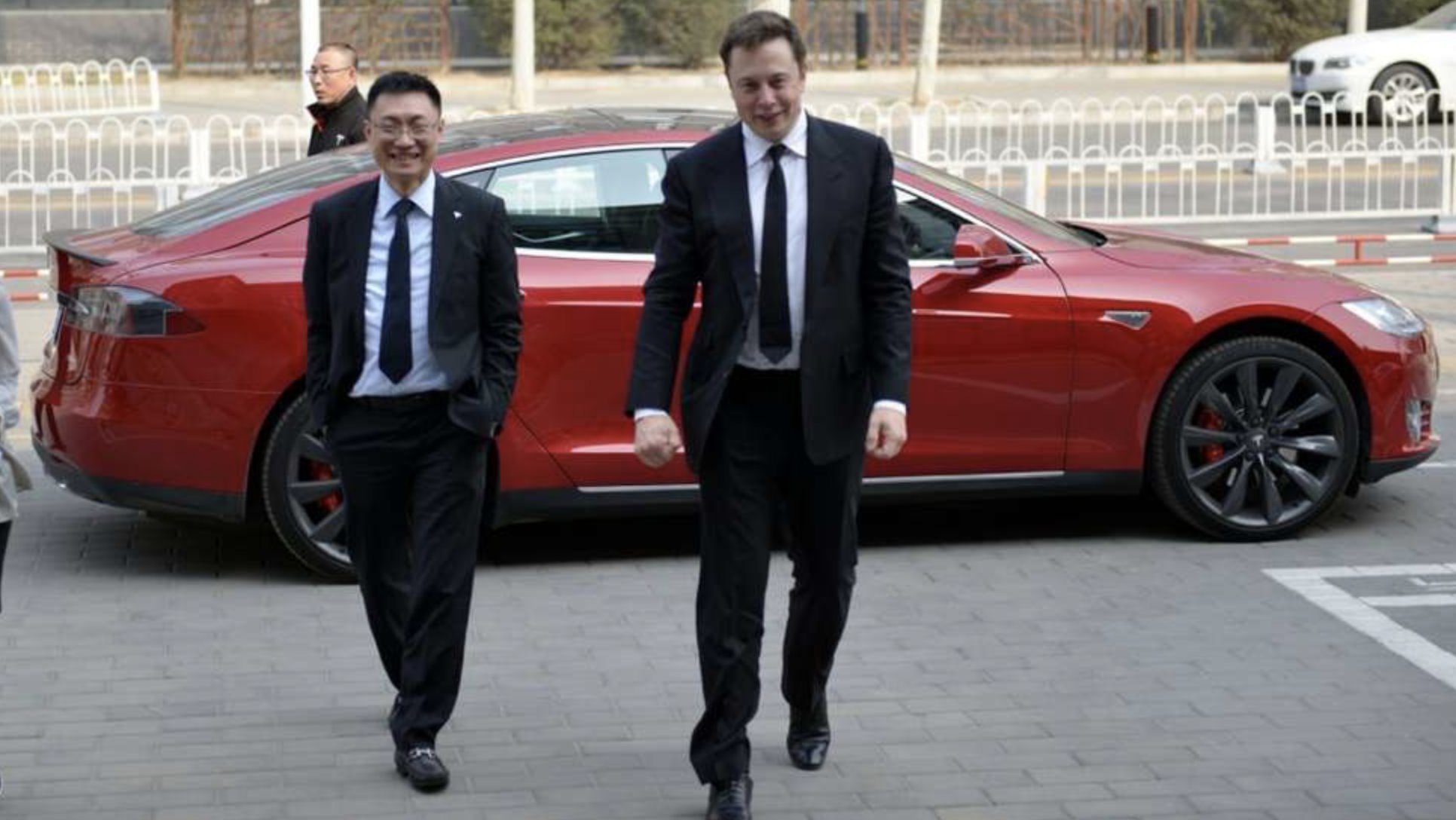
Tesla has granted Senior Vice President of Automotive Tom Zhu more than 520,000 stock options, tying a significant portion of his compensation to the company’s long-term performance.
The generous equity award was disclosed by the electric vehicle maker in a recent regulatory filing.
Tesla secures top talent
According to a Form 4 filing with the U.S. Securities and Exchange Commission, Tom Zhu received 520,021 stock options with an exercise price of $435.80 per share. Since the award will not fully vest until March 5, 2031, Zhu must remain at Tesla for more than five years to realize the award’s full benefit.
Considering that Tesla shares are currently trading at around the $445 to $450 per share level, Zhu will really only see gains in his equity award if Tesla’s stock price sees a notable rise over the years, as noted in a Sina Finance report.
Still, even at today’s prices, Zhu’s stock award is already worth over $230 million. If Tesla reaches the market cap targets set forth in Elon Musk’s 2025 CEO Performance Award, Zhu would become a billionaire from this equity award alone.
Tesla’s problem solver
Zhu joined Tesla in April 2014 and initially led the company’s Supercharger rollout in China. Later that year, he assumed the leadership of Tesla’s China business, where he played a central role in Tesla’s localization efforts, including expanding retail and service networks, and later, overseeing the development of Gigafactory Shanghai.
Zhu’s efforts helped transform China into one of Tesla’s most important markets and production hubs. In 2023, Tesla promoted Zhu to Senior Vice President of Automotive, placing him among the company’s core global executives and expanding his influence beyond China. He has since garnered a reputation as the company’s problem solver, being tapped by Elon Musk to help ramp Giga Texas’s vehicle production.
With this in mind, Tesla’s recent filing seems to suggest that the company is locking in its top talent as it enters its newest, most ambitious era to date. As could be seen in the targets of Elon Musk’s 2025 pay package, Tesla is now aiming to be the world’s largest company by market cap, and it is aiming to achieve production levels that are unheard of. Zhu’s talents would definitely be of use in this stage of the company’s growth.
Investor's Corner
Tesla analyst teases self-driving dominance in new note: ‘It’s not even close’
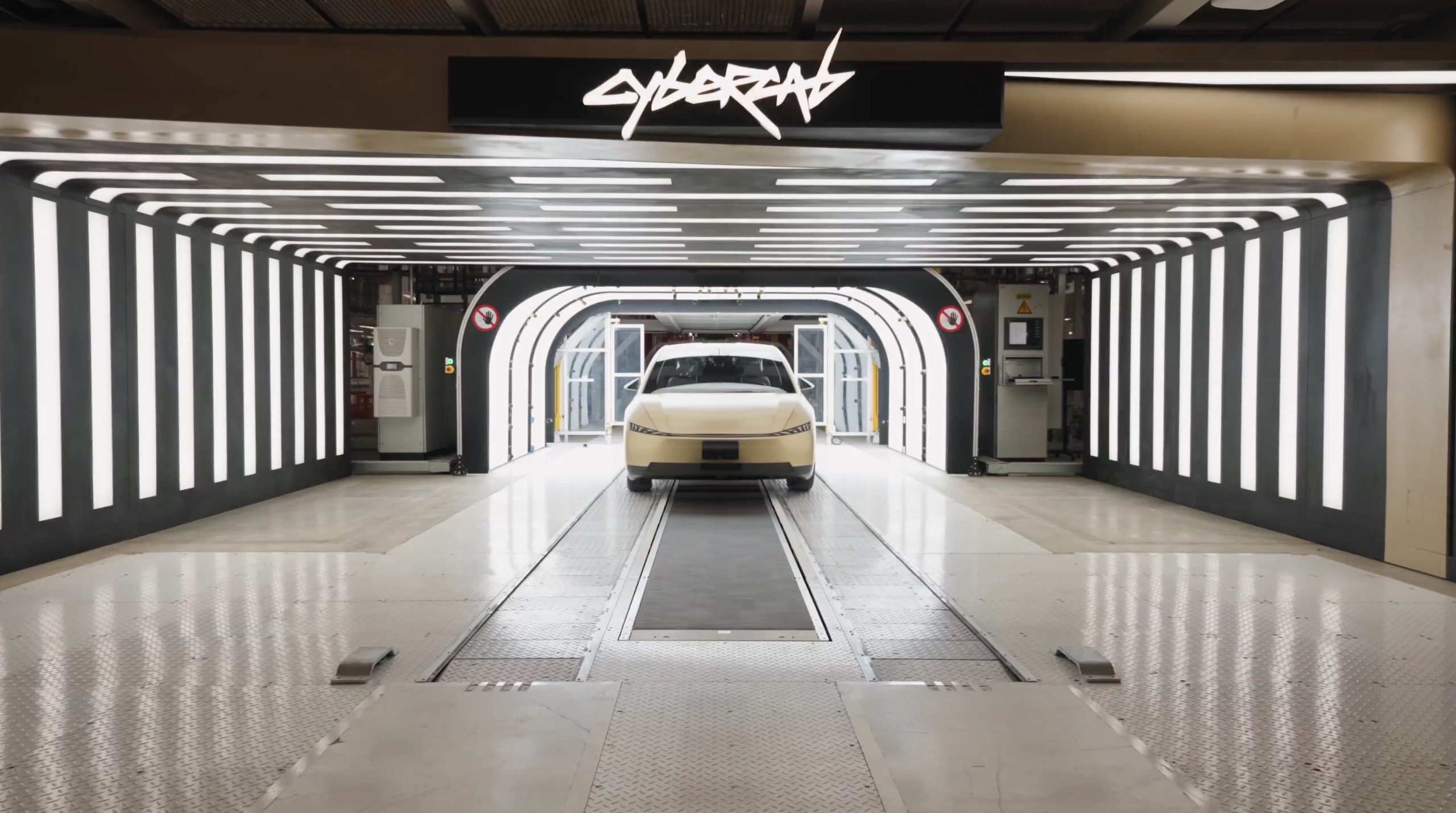
Tesla analyst Andrew Percoco of Morgan Stanley teased the company’s dominance in its self-driving initiative, stating that its lead over competitors is “not even close.”
Percoco recently overtook coverage of Tesla stock from Adam Jonas, who had covered the company at Morgan Stanley for years. Percoco is handling Tesla now that Jonas is covering embodied AI stocks and no longer automotive.
His first move after grabbing coverage was to adjust the price target from $410 to $425, as well as the rating from ‘Overweight’ to ‘Equal Weight.’
Percoco’s new note regarding Tesla highlights the company’s extensive lead in self-driving and autonomy projects, something that it has plenty of competition in, but has established its prowess over the past few years.
He writes:
“It’s not even close. Tesla continues to lead in autonomous driving, even as Nvidia rolls out new technology aimed at helping other automakers build driverless systems.”
Percoco’s main point regarding Tesla’s advantage is the company’s ability to collect large amounts of training data through its massive fleet, as millions of cars are driving throughout the world and gathering millions of miles of vehicle behavior on the road.
This is the main point that Percoco makes regarding Tesla’s lead in the entire autonomy sector: data is King, and Tesla has the most of it.
One big story that has hit the news over the past week is that of NVIDIA and its own self-driving suite, called Alpamayo. NVIDIA launched this open-source AI program last week, but it differs from Tesla’s in a significant fashion, especially from a hardware perspective, as it plans to use a combination of LiDAR, Radar, and Vision (Cameras) to operate.
Percoco said that NVIDIA’s announcement does not impact Morgan Stanley’s long-term opinions on Tesla and its strength or prowess in self-driving.
NVIDIA CEO Jensen Huang commends Tesla’s Elon Musk for early belief
And, for what it’s worth, NVIDIA CEO Jensen Huang even said some remarkable things about Tesla following the launch of Alpamayo:
“I think the Tesla stack is the most advanced autonomous vehicle stack in the world. I’m fairly certain they were already using end-to-end AI. Whether their AI did reasoning or not is somewhat secondary to that first part.”
Percoco reiterated both the $425 price target and the ‘Equal Weight’ rating on Tesla shares.
Investor's Corner
Tesla price target boost from its biggest bear is 95% below its current level
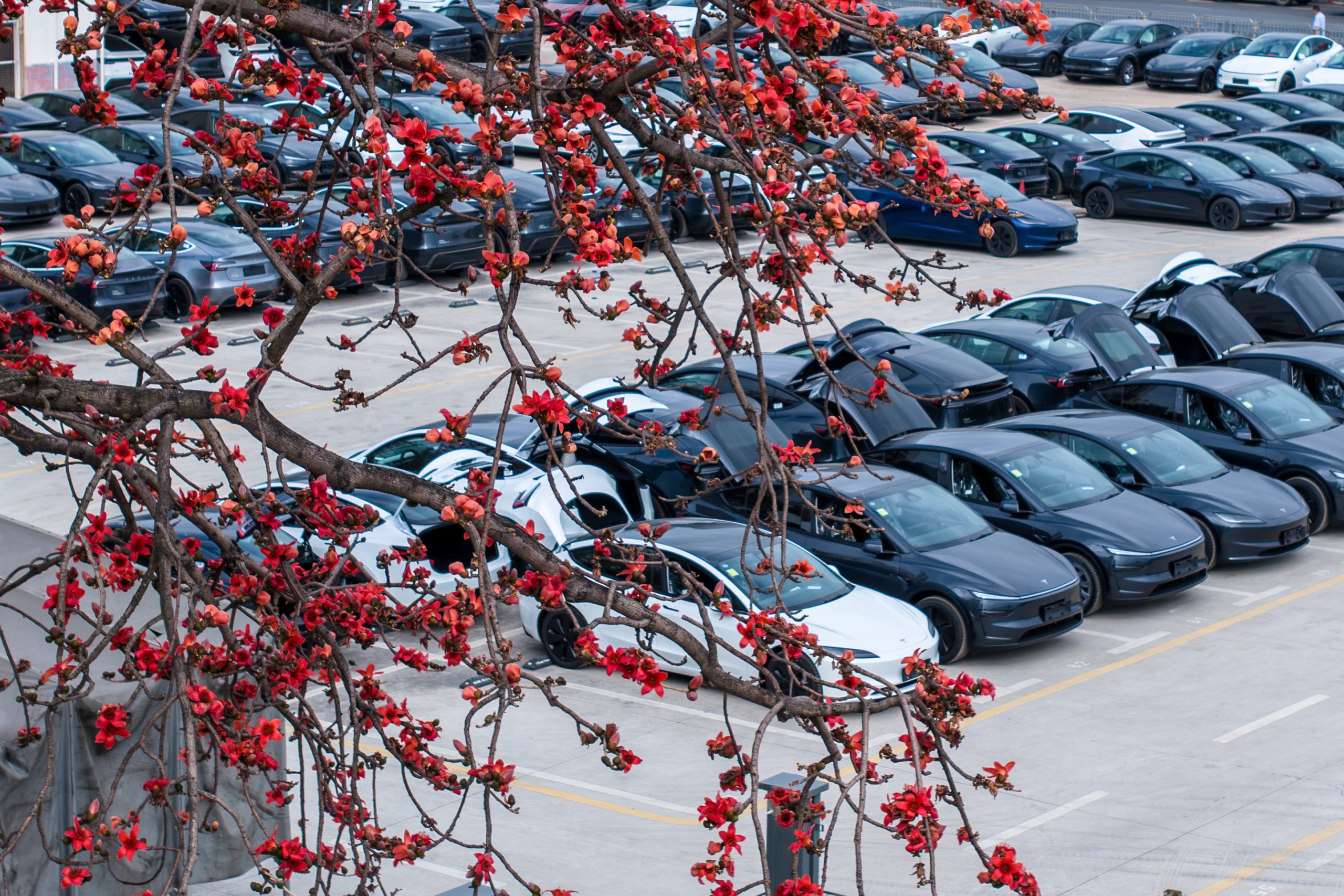
Tesla stock (NASDAQ: TSLA) just got a price target boost from its biggest bear, Gordon Johnson of GLJ Research, who raised his expected trading level to one that is 95 percent lower than its current trading level.
Johnson pushed his Tesla price target from $19.05 to $25.28 on Wednesday, while maintaining the ‘Sell’ rating that has been present on the stock for a long time. GLJ has largely been recognized as the biggest skeptic of Elon Musk’s company, being particularly critical of the automotive side of things.
Tesla has routinely been called out by Johnson for negative delivery growth, what he calls “weakening demand,” and price cuts that have occurred in past years, all pointing to them as desperate measures to sell its cars.
Johnson has also said that Tesla is extremely overvalued and is too reliant on regulatory credits for profitability. Other analysts on the bullish side recognize Tesla as a company that is bigger than just its automotive side.
Many believe it is a leader in autonomous driving, like Dan Ives of Wedbush, who believes Tesla will have a widely successful 2026, especially if it can come through on its targets and schedules for Robotaxi and Cybercab.
Justifying the price target this week, Johnson said that the revised valuation is based on “reality rather than narrative.” Tesla has been noted by other analysts and financial experts as a stock that trades on narrative, something Johnson obviously disagrees with.
Dan Nathan, a notorious skeptic of the stock, turned bullish late last year, recognizing the company’s shares trade on “technicals and sentiment.” He said, “From a trading perspective, it looks very interesting.”
Tesla bear turns bullish for two reasons as stock continues boost
Johnson has remained very consistent with this sentiment regarding Tesla and his beliefs regarding its true valuation, and has never shied away from putting his true thoughts out there.
Tesla shares closed at $431.40 today, about 95 percent above where Johnson’s new price target lies.








